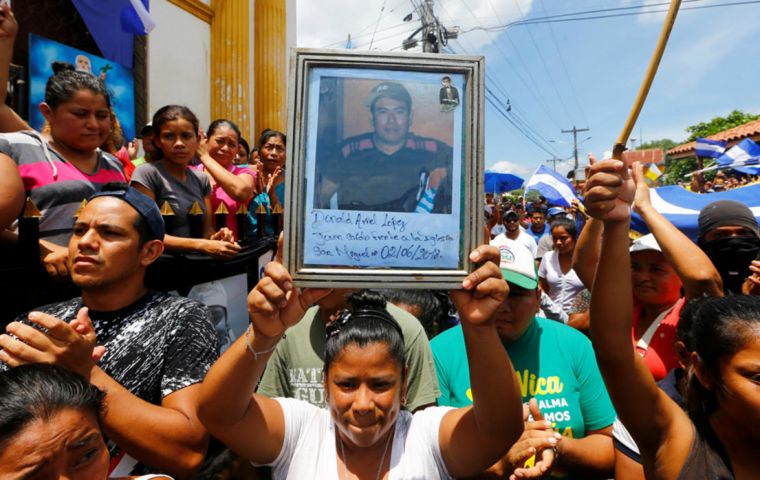MercoPress. South Atlantic News Agency
EU sanctions on Nicaragua for Ortega's human rights abuses and repression
 Political violence in Nicaragua left some 300 people dead and 2,000 wounded, while hundreds of opposition members were jailed and 70,000 people fled the country.
Political violence in Nicaragua left some 300 people dead and 2,000 wounded, while hundreds of opposition members were jailed and 70,000 people fled the country. The European Union adopted a sanctions framework for Nicaragua on Monday over human rights abuses and repression in the Central American country under leftist President Daniel Ortega.
The move, validated in a meeting of EU foreign ministers, does not immediately enact punishment on Nicaragua but allows targeted travel bans and asset freezes to be quickly imposed at a later stage.
Europe is wielding the measure to press Ortega's government to resume talks with the opposition to resolve a political crisis that started in April 2018, when protests mushroomed into a popular uprising met with a brutal crackdown.
Political violence in Nicaragua left more than 300 people dead and 2,000 wounded, according to rights groups, while hundreds of opposition supporters were jailed and 70,000 people fled the country.
In a report last month, UN human rights chief Michelle Bachelet detailed a wide range of violations, including extrajudicial killings, violence by pro-government armed groups, arbitrary detention, sexual violence and torture.
“The continued refusal to resume the dialogue with the opposition conveys a negative signal on the willingness of the government to work towards a peaceful and democratic way out of the crisis,” the EU ministers said in a statement.
Ortega, in power since 2006, broke off talks with the opposition at the end of July.
EU foreign ministers noted one of the few “positive steps” seen in Nicaragua was the release of some political prisoners but said “the overall situation of human rights and democratic governance remains highly concerning”.





Top Comments
Disclaimer & comment rulesCommenting for this story is now closed.
If you have a Facebook account, become a fan and comment on our Facebook Page!